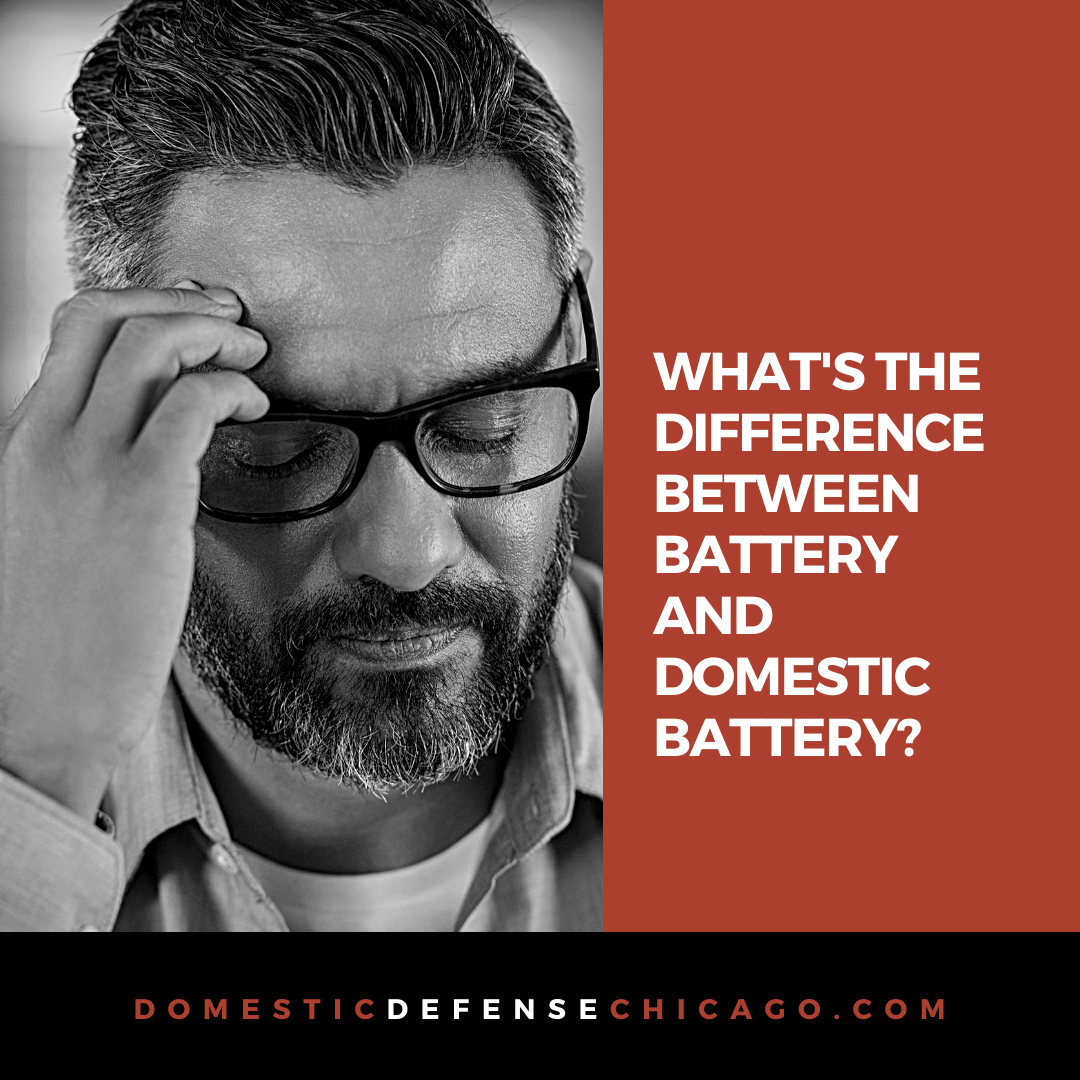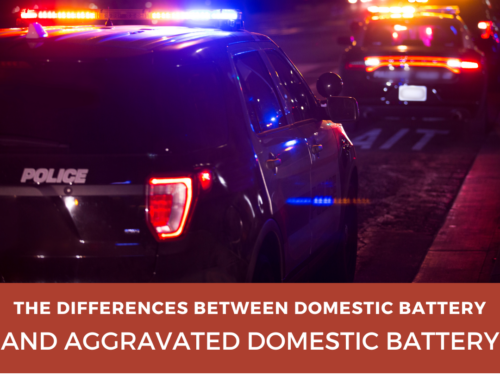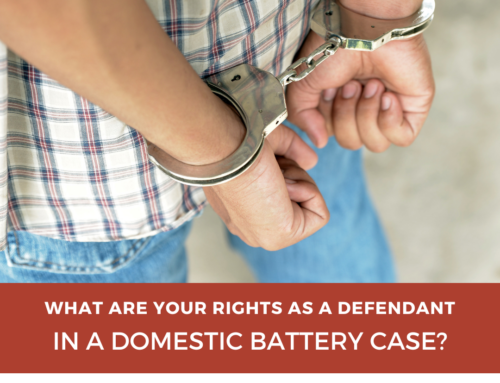What’s the difference between battery and domestic battery? If you’ve been charged with one or the other, here’s what you need to know.
What’s the Difference Between Battery and Domestic Battery?
Battery can be a misdemeanor or a felony (like domestic battery can), but it occurs when someone causes physical harm to another person or makes contact of an “insulting or provoking nature” without causing harm.
Domestic battery is very similar, but it occurs within specific relationships. In order for a battery to be considered a domestic battery, the defendant (the person accused of the crime) must be in one of the following relationships with the alleged victim:
- Spouses
- Ex-spouses
- Blood-related family members
- Co-parents
- Current roommates or former roommates
- Elderly adults and caregivers
- Disabled adults and caregivers
- Individuals related by blood through a child
- Parents and children
- Stepparents and stepchildren
The main difference is the relationship – but the classification of the crime is also different.
Related: Is emotional abuse considered domestic battery?
Domestic battery is usually a Class A misdemeanor, which carries a penalty of up to a year in jail and fines of up to $2,500. However, domestic battery becomes a Class 4 felony if the defendant:
- Uses a firearm in connection with a domestic battery incident
- The battery involves a child
- The battery involves a sexual assault
A Class 4 felony comes with more serious consequences. You could spend up to three years in prison and pay fines of up to $25,000 if the state convicts you of domestic battery as a Class 4 felony.
Sometimes domestic battery is also a Class 2 felony. It’s considered this more-serious type if it’s aggravated. That means the defendant caused great bodily harm or permanent disability or disfigurement, or that the defendant strangled the alleged victim during the commission of a domestic battery crime. In that case, the crime carries a penalty of up to 7 years in prison – but if you have a previous aggravated domestic battery conviction, you could spend up to 14 years in prison.
Related: What should you do if someone gets an order of protection against you?
Learn More About Your Domestic Battery Charge – And Your Options
If you’ve been accused of domestic battery, we may be able to help you. Call 847-920-4540 now or fill out the form below to get a free consultation. We can answer your questions and, if we work together, develop a strategy that gets you the best possible outcome.







Leave A Comment
You must be logged in to post a comment.